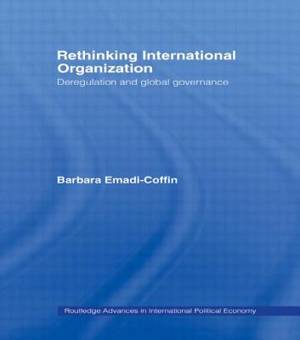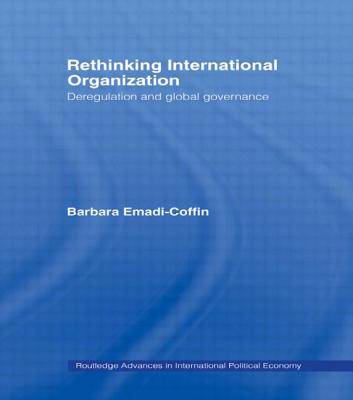
- Afhalen na 1 uur in een winkel met voorraad
- Gratis thuislevering in België vanaf € 30
- Ruim aanbod met 7 miljoen producten
- Afhalen na 1 uur in een winkel met voorraad
- Gratis thuislevering in België vanaf € 30
- Ruim aanbod met 7 miljoen producten
Zoeken
€ 381,95
+ 763 punten
Uitvoering
Omschrijving
The function of the state as a symbol of identity has become increasingly important as major powers of the pre-Cold War era have given way to self-determination. The conventional role of the state has, however, simultaneously been challenged by the process of globalisation which transcends such national boundaries. Barbara Emadi-Coffin seeks to explain this contradiction through a radical new theory. There are now 37,000 multinational corporations in the world, many of which are increasingly seen as being among the new centres of political and economic power. Barbara Emadi-Coffin analyses the increasing interaction of multinational corporations, international organizations and transnational interest groups, such as Greenpeace and Amnesty International, in processes of the global political economy. Using examples of the free trade zones in Korea, the UK and the People's Republic of China, the author demonstrates these interactions. In so doing, she challenges prevailing notions surrounding International Organization theory.
Specificaties
Betrokkenen
- Auteur(s):
- Uitgeverij:
Inhoud
- Aantal bladzijden:
- 224
- Taal:
- Engels
- Reeks:
- Reeksnummer:
- nr. 9
Eigenschappen
- Productcode (EAN):
- 9780415195409
- Verschijningsdatum:
- 21/02/2002
- Uitvoering:
- Hardcover
- Formaat:
- Genaaid
- Afmetingen:
- 142 mm x 227 mm
- Gewicht:
- 462 g

Alleen bij Standaard Boekhandel
+ 763 punten op je klantenkaart van Standaard Boekhandel
Beoordelingen
We publiceren alleen reviews die voldoen aan de voorwaarden voor reviews. Bekijk onze voorwaarden voor reviews.











